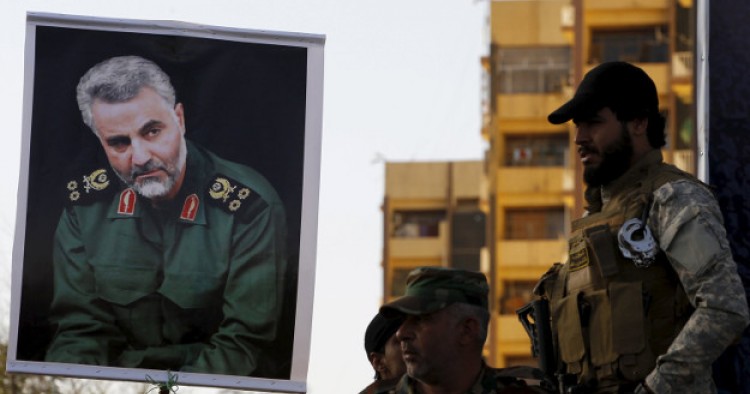In the latest example of Iranian interference in Iraq, a top Iranian general has said that the presence of the Saudi consulate in Erbil, the capital of Iraq’s semi-autonomous Kurdish region, is not “justified” and demanded that it be shut down.
“The question is what ‘Saudi Arabia’s consulate’ is doing in Erbil,” asked Brigadier General Mohammad Hossein Rajabi, the commander of the Islamic Revolution Guards Corps (IRGC) in Iran’s Kurdistan Province bordering Iraq. “How many Arabs do we have there so that they [Saudi diplomats] provide services to them? Therefore, their presence has no justification because their goals are to provoke turmoil and incitement and disrupt peace,” he told IRGC-affiliated Tasnim News Agency on January 14. “It is true that we maintain security, but ‘Saudi Arabia’s consulate’ also commits sedition against the Iraqi Kurds and should leave that region because Iraqi people do not need them.”
Rajabi also questioned the presence of other foreign diplomatic missions in the Iraqi Kurdistan. “The existence of 30 consulates in Erbil is not natural. They have not come to serve the country and its people. But many of them are a shield for espionage work and acts of desperation and provocation.” The United States and many European and Asian countries have diplomatic missions in Erbil.
The IRGC commander’s remarks are emblematic of Iranian efforts to not just shape the trajectory of the war in Iraq, but also dominate the country’s political landscape. But his comment did not go unnoticed in Iraq and Saudi Arabia.
Falah Mustafa, the foreign minister for Kurdistan Regional Government (KRG), criticized the IRGC general’s statements. “We are surprised that a neighboring country is trying to interfere in our internal affairs and dictate ways of doing things for us,” Musafa told Rudaw.
The reaction from Riyadh was also swift and scathing.
"Iran appoints a war criminal and (one of the) world's wanted men as its envoy in Iraq and demands closing the Saudi consulate in Erbil," Thamer Al-Sabhan, the Saudi minister of state for the Gulf region, wrote on Twitter. Sabhan’s statement referred to recent reports in the Iranian media that a senior adviser of Iran’s Quds Force Commander Qassem Suleimani will be Tehran’s next ambassador to Baghdad.
According to Asr-e Iran, Brigadier General Iraj Masjedi will replace Hassan Danaeifar, who has served as Tehran’s ambassador to Baghdad over the past six years. Last June, Masjidi had said that “Aleppo, Fallujah and other regions in Syria and Iraq are the front-line of the Islamic Resistance,” and argued that “the fight in Syria and Iraq serves to defend our country’s borders.” Given the Quds Force’s destabilizing role and support for sectarian militias in Iraq since 2003, it is no surprise that regional Sunni states are worried about the potential appointment of a senior Quds Force operative in Baghdad as well as about the IRGC’s increasing influence across Iraq.
The Middle East Institute (MEI) is an independent, non-partisan, non-for-profit, educational organization. It does not engage in advocacy and its scholars’ opinions are their own. MEI welcomes financial donations, but retains sole editorial control over its work and its publications reflect only the authors’ views. For a listing of MEI donors, please click here.













